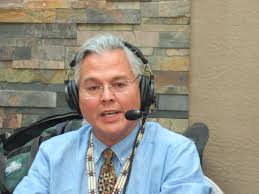Without getting into specifics, the Sault Ste. Marie of Chippewa Indians board of directors through a motion, on Tuesday, Jan. 4, 2022, censured Chairperson Aaron Payment for a variety of reasons (see below) that were worded broadly.

The censure comes with actions by the board of directors that will apparently cause Payment to have to vacate his position as recording secretary of the National Congress of Americans (NCAI).
According to a document obtained by Native News Online, the tribal board of directors in its motion to censure Payment adds “…Removes the Chairperson from any/all internal committees (with the exception of those established by Tribal Code) and external committees that are the result of the Tribes Membership with their respective organizations. Notice of which shall be provided by the Tribes Executive Director.”
Payment was unanimously elected to serve as recording secretary of NCAI, the largest national American Indian organization in the country, in October 2021, after serving as NCAI’s first vice president for two terms.
Want more Native News? Get the free daily newsletter today.
Additionally, Payment serves as president of the Midwest Alliance of Sovereign Tribes (MAST) and the United Tribes of Michigan.
Payment posted on his Facebook page Tuesday evening:
“Clearly the Board of Directors violated our Tribal Constitution by not noticing this action item five days in advance. Next, they conspired outside of a meeting to draft up this action that they sprung at the meeting. They also kept their actions secret from Directors Freiheit and Lowes. This too violates our Open Meetings Act, Tribal Constitution and in itself REMOVABLE.”
Payment added to Native News Online: "The Sault Tribe Board's action is nothing short of a political coup not unlike that in banana republics. Voters of the Tribe recently reelected me with the greatest margin for Chairperson in more than a quarter of a century. The Board's action are unwarranted and inconsistent with the will of the Sault Tribe voters... To vote to eliminate the national level work I do for my tribe and all tribes is out of spite and retribution."
The motion to censure Payment says the board of directors “authorizes the Executive Director, with the assistance of the Tribes Legal Counsel, to contract and retain an external Firm to investigate and address the conduct of the Tribal Chairperson.”
The motion does not specify an end date when an investigation should be completed.
Payment will remain as chairperson of the tribe, which is the most populated tribe east of the Mississippi River.
The motion reads:
The Sault Tribe Board of Directors finds that Tribal Chairperson, Aaron Payment, has:
- Violated his duty to create an environment that fosters respect and dignity
- Violated his duty to maintain an environment free of harassment and intimidation
- Intimidated, Harassed, and Publicly Attacked Employees
- Continually committed Malicious Public Attacks upon Tribal Members
- Violated the Medical Privacy and Procedures of Individual Tribal Members
- Violated Resolution 2012-222 Privacy of Board Member Phone and Computer Records
- Breached/Released Confidential Information, violating Tribal Code, Chapter 96
- Campaigned prior to notice of Election pursuant to Tribal Code, Chapter 10
- Violated Tribal Resolution 93-123 Code of Professional Conduct
Payment was reelected chairperson of the tribe on June 25, 2020 with 57.5 percent of the votes cast. Payment received 3,892 votes compared to 2,877 cast for Jennifer McLeod, his opponent.
There were no responses to requests for comments to several board of directors and the tribe’s legal counsel from Native News Online at press time.
This story has been updated to include a statement from Payment.
More Stories Like This
Native News Weekly (August 25, 2024): D.C. BriefsNavajo Nation Mourns the Passing of Former Vice President Rex Lee Jim
Deb Haaland Earns Endorsement From Communications Workers of America Local 7076
University Soccer Standout Leads by Example
Two Native Americans Named to Democratic Congressional Campaign Committee's“Red to Blue” Program
Help us defend tribal sovereignty.
At Native News Online, our mission is rooted in telling the stories that strengthen sovereignty and uplift Indigenous voices — not just at year’s end, but every single day.
Because of your generosity last year, we were able to keep our reporters on the ground in tribal communities, at national gatherings and in the halls of Congress — covering the issues that matter most to Indian Country: sovereignty, culture, education, health and economic opportunity.
That support sustained us through a tough year in 2025. Now, as we look to the year ahead, we need your help right now to ensure warrior journalism remains strong — reporting that defends tribal sovereignty, amplifies Native truth, and holds power accountable.
 The stakes couldn't be higher. Your support keeps Native voices heard, Native stories told and Native sovereignty defended.
The stakes couldn't be higher. Your support keeps Native voices heard, Native stories told and Native sovereignty defended.
Stand with Warrior Journalism today.
Levi Rickert (Potawatomi), Editor & Publisher

